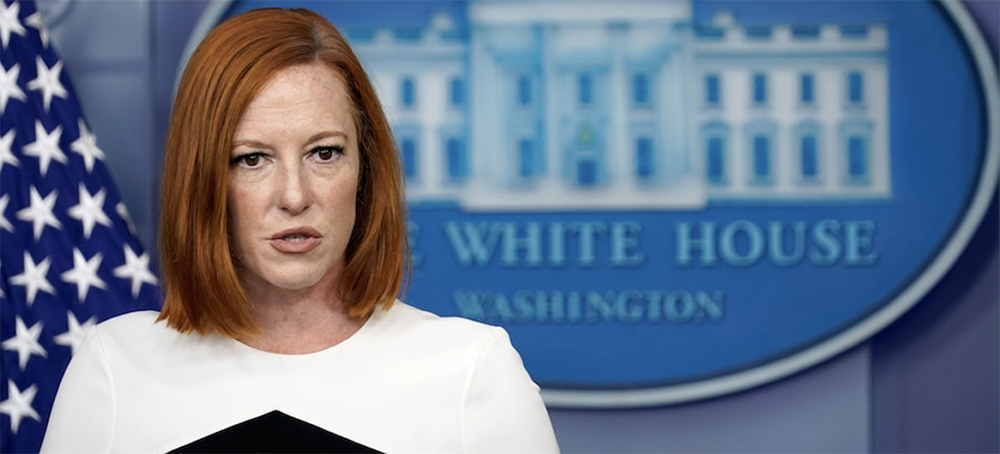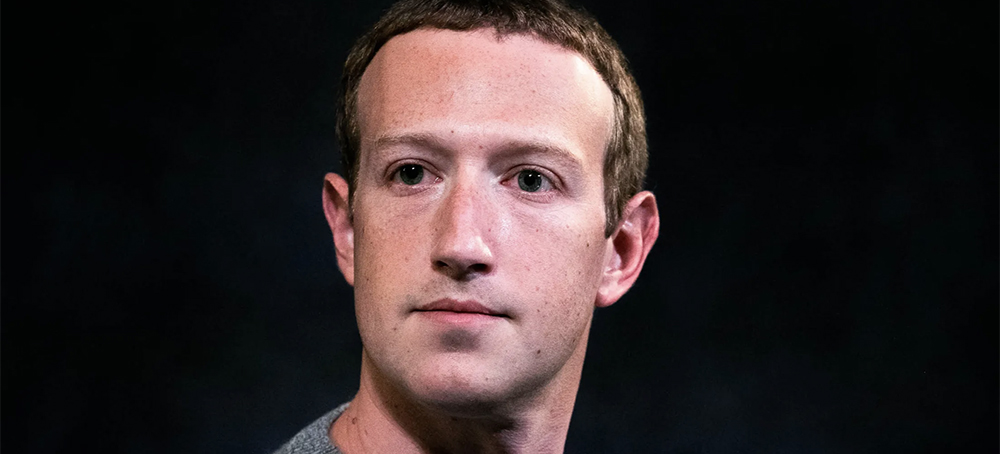Live on the homepage now!
Reader Supported News
Crews assembled early Wednesday morning to remove a 12-ton statue of Lee from its pedestal in Richmond, Virginia, once the capital of the Confederacy. As cranes lifted the statue in the air, the crowd that gathered to watch cheered and bid the figure farewell, singing “Hey, hey, hey, goodbye.”
The statue, which depicts Lee seated on a horse, was first installed in 1890 and stands about six stories tall on the city’s Monument Avenue. The statue has been the subject of massive controversy as one of the country’s largest monuments to the Confederacy and the site of countless demonstrations for racial justice.
Governor Ralph Northam ordered the removal of the statue back in June 2020, not long after the murder of George Floyd, saying at the time, “A pedestal is a place of honor. We put things on pedestals when we want people to look up.”
The decision was held up for months by multiple legal challenges. However, Virginia’s Supreme Court ruled in favor of the statue’s removal last week, allowing the process to move forward.
“The public monuments reflect the story we choose to tell about who we are as a people. It is time to display history as history, and use the public memorials to honor the full and inclusive truth of who we are today and in the future,” Northam said in a statement following the removal.
Northam said the Lee statue will be put in “secure storage at a state facility” until a decision is made about its permanent relocation.
On Wednesday night, former President Donald Trump weighed in on the removal of the “magnificent and very famous” statue in a statement that appeared to suggest he was rooting for the Confederacy to have come out on top. He claims Lee “chose the other side because of his great love of Virginia, and except for Gettysburg, would have won the war.” Trump also described the rebel leader fighting to uphold slavery as a “unifying force,” adding that if the general whose surrender effectively ended the Civil War were to have led U.S. forces in Afghanistan, “that disaster would have ended in a complete and total victory many years ago.”
 Ron DeSantis. (photo: Joe Raedle/Getty Images)
Ron DeSantis. (photo: Joe Raedle/Getty Images)
 White House press secretary Jen Psaki speaks during the daily briefing at the White House in Washington on Sept. 8. (photo: Susan Walsh/AP)
White House press secretary Jen Psaki speaks during the daily briefing at the White House in Washington on Sept. 8. (photo: Susan Walsh/AP)
Among the 11 officials are former White House counselor Kellyanne Conway, former White House press secretary Sean Spicer and former national security adviser H.R. McMaster, according to CNN, which first reported news of the request.
Earlier Wednesday, one of the Trump appointees, Russ Vought, shared on social media a letter he received from the White House requesting that he resign or else face termination effective 6 p.m. He said he would not step down.
“Yes, we have,” White House press secretary Jen Psaki said when asked whether the White House had requested the resignations. “And the president’s objective is what any president’s objective is: to ensure you have nominees and people serving on these boards who are qualified to serve on them and who are aligned with your values. And so, yes, that was an ask that was made.”
Asked whether the White House was concerned that the move might risk politicizing positions that have traditionally been nonpartisan roles that have spanned administrations, Psaki reiterated that the president’s primary concern was an appointee’s qualifications and values.
The boards are composed of members of Congress and presidential appointees and serve for three years in an advisory capacity. If they fail to resign, they could be fired.
“I will let others evaluate whether they think Kellyanne Conway and Sean Spicer and others were qualified, or not political, to serve on these boards,” Psaki said. “But the president’s qualification requirements are not your party registration.”
Conway had been appointed to the Air Force Academy Board of Visitors. Spicer, a Navy Reserve commander, had been serving on the Naval Academy’s advisory board. McMaster had been appointed to the advisory board at the U.S. Military Academy; the retired U.S. Army lieutenant general is a West Point graduate and previously taught history there.
Retired four-star Army Gen. Jack Keane also was appointed to the U.S. Military Academy Board.
Conway, in response to the request, tweeted a letter to Biden in which she said: “I’m not resigning, but you should,” saying the White House action “seems petty and political, if not personal.”
Vought, the former director of the Office of Management and Budget in the Trump administration, had been serving on the Naval Academy’s Board of Visitors. In a tweet Wednesday afternoon, he shared a copy of the letter requesting his resignation along with a defiant reply: “No. It’s a three-year term.”
Spicer responded by criticizing President Biden’s handling of the withdrawal of U.S. forces from Afghanistan.
“Instead of focusing on the stranded Americans left in #Afghanistan, President Biden is trying to terminate the Trump appointees to the Naval Academy, West Point and Air Force Academy,” he said in a tweet.
Keane, in an email response to The Washington Post, said it was “very disappointing that President Biden is not upholding the previous president’s appointments which has been pretty much the tradition.”
He said that when Trump appointees joined with those of former president Barack Obama, the advisory board “was quite stronger for its non-partisan membership. What we all have in common is the honor of assisting and supporting one of America’s most esteemed and beloved institutions.”
 The grave of Philando Castile at Calvary cemetery in St Louis. Castile was shot and killed by a police officer in a 2016 stop for a broken tail light in Minnesota. (photo: David Carson/AP)
The grave of Philando Castile at Calvary cemetery in St Louis. Castile was shot and killed by a police officer in a 2016 stop for a broken tail light in Minnesota. (photo: David Carson/AP)
Minnesota attorney says he won’t pursue cases in aim to reduce ‘unnecessary’ encounters between police and people of color that can turn fatal
The aim, according to the Ramsey county attorney John Choi, is to reduce the number of “unnecessary” encounters between police and people of color that can, as in Castile’s confrontation with officer Jeronimo Yanez, turn fatal.
“I’m not going to do this any more. I am not going to perpetuate these unjust practices that disproportionately impact my community,” Choi said in an interview with the Daily Beast.
Yanez, who is Hispanic, shot Castile, 32, seven times on 6 July 2016, after pulling him over for the broken light. Castile’s partner Diamond Reynolds, who livestreamed the aftermath of the incident, said the officer opened fire immediately after warning her boyfriend not to reach for a licensed gun he said he owned.
In June 2017, a jury acquitted Yanez of manslaughter and other charges, sparking days of protests in Minneapolis and elsewhere. The same month, Castile’s mother Valerie reached a $3m settlement with the city of St Anthony and its police department.
Choi, the Ramsey county attorney since 2011, whose biography describes him as the first Korean-American prosecutor in the US, told the Beast that he had never stopped thinking about the innocuous reason for the stop.
In Castile’s case, he had been pulled over on at least 40 previous occasions. And in St Paul, Ramsey county’s largest city where only 16% of the population is black, 43% of traffic stops in 2020 were of black motorists.
Nationally, black drivers are 20% more likely to be stopped than white drivers, and almost twice as likely to be searched, according to a New York University study published last year.
“We have failed to think about the 98% of people. We can continue to perpetuate all this, or we can change it,” said Choi, who said he believed the low probability of finding guns or drugs in vehicles during such stops was not worth alienating the community for.
Moving infractions, such as motorists driving erratically or at high speed, should continue to be investigated, he said.
The prosecutor’s new approach, which he announced on Wednesday, drew mostly supportive reactions from law enforcement. Todd Axtell, chief of the St Paul police department, issued new guidelines to officers on the same day, according to an email the Beast said it obtained.
Minor violations such as expired tags, a broken headlight or taillight, illegally tinted windows and objects hanging from mirrors were “illegal and important to note”, Axtell said, but had little effect on public safety.
“I want to be perfectly clear: We should not use these violations as a primary reason for a traffic stop unless there’s an articulable public safety concern,” Axtell wrote.
The neighboring Roseville police department also endorsed the new policy in a press release issued on Wednesday entitled “non-public safety traffic stops”.
“Absent other factors, the department will not enforce equipment violations, expired registrations, or other non-moving violations that do not create a public safety concern or a dangerous condition,” the statement, from deputy chief Joe Adams, said.
The department “believes that the changes made to the traffic enforcement policy support the racial equity and inclusion goals of the city”.
But Brian Peters, executive director of the Minnesota police and peace officers association, said Choi’s policy was “absurd” and “a slap in the face” for victims of crime.
“Basically, the county attorney just announced his office won’t uphold the law and won’t prosecute those [who] break it,” he said in a Facebook statement.
“Those that break the law won’t even get a slap on the wrist, they’ll get a high-five from the county attorney and be left to commit more and more serious offenses. Reduction of crime and public safety for all should be our focus as the crime rate escalates, and this isn’t it.”
 Facebook CEO Mark Zuckerberg. (photo: Mark Lennihan/AP)
Facebook CEO Mark Zuckerberg. (photo: Mark Lennihan/AP)
Amazon, Google, and Facebook have all made significant donations in recent years to conservative groups that strongly pushed for the new Texas abortion law.
A review of public disclosures from Facebook, Google, and Amazon shows the tech giants have for years funded some of the most influential conservative political organizations and dark money groups responsible for the war on abortion rights. Those groups include The Federalist Society, the Heritage Foundation, the American Enterprise Institute, the Committee for Justice, and the Republican Attorneys General Association.
When The Daily Beast asked this week whether these donations would continue, the companies—all of which have a strong presence in Texas—all ignored our questions.
Dina Montemarano, research director at abortion rights group NARAL Pro-Choice America, called the relationships “twisted hypocrisy.”
“It’s rich that we see near-constant cries of ‘censorship’ from anti-choice extremists when tech companies remove their dangerous disinformation, all the while these groups receive funding from many of these exact companies,” Montemarano told The Daily Beast, referencing the recent anti-corporate push from the Republican base targeting social media companies. The strategy, she said, has “worked all too well for conservatives” to net them “preferential treatment from tech companies while ginning up faux outrage as another way of appealing to their fringe base.”
“These companies are also playing this game, speaking out against injustice when it suits their bottom line while simultaneously funding the movements causing injustice,” Montemarano said. “It’s far past time we pulled the mask off this twisted hypocrisy.”
Chief among these groups is The Federalist Society, a hyper-conservative nonprofit bent on stacking the federal bench with anti-abortion judges. The group, whose leadership has over the years raised hundreds of millions of dollars for efforts to overturn Roe v. Wade, has received donations from Google and Facebook every year since 2015.
The architect of the Texas law, Jonathan F. Mitchell, was a member of The Federalist Society, according to a recent Texas Monthly profile. That article also reports Mitchell as a member at the Hoover Institution, another ultra-conservative anti-abortion group, which got funding from Facebook in 2019.
Yet in 2019, Facebook CEO Mark Zuckerberg admitted his company had blocked ads from American pro-life groups trying to influence an Irish abortion referendum. That same year, Google changed its abortion ad policy, after The Guardian reported the company had run deceptive anti-abortion ads. And last year, to the consternation of conservatives, Amazon Prime removed a controversial anti-abortion documentary from its streaming lineup.
While the three companies have donated heavily to liberal causes over the years, none of them has given to Planned Parenthood, EMILY’s List, or NARAL, according to a database of public corporate disclosures compiled by left-leaning watchdog Campaign for Accountability. All three are poised to expand an already heavy corporate presence in The Lone Star State, where they employ thousands of workers and boast multiple campuses, including in the capital, Austin—the birthplace of Amazon-owned Whole Foods.
But all three companies have, year after year, continued to throw money at right-wing groups that have consistently fought to repeal abortion rights.
Beyond The Federalist Society, Google and Facebook have both given financial support to the Heritage Foundation, another key player in the push to overturn the longstanding Roe precedent. Heritage recently posted an article casting the Texas law in a favorable light. Facebook supported the Heritage Foundation in 2019 and 2020, and Google donated to the group between 2019 and 2020. Heritage pledged to reject Big Tech donations this year.
The Committee for Justice, another right-wing nonprofit that advocates heavily for anti-abortion judges, also got money from Google in 2020, and is listed by the company’s government relations arm among the groups which have received “the most substantial contributions.”
Other beneficiaries include The Cato Institute, the prolific libertarian-leaning think tank founded by conservative megadonor Charles Koch. Cato has also seen annual financial backing from Google and Facebook since 2015. The two companies have also shown largesse to the anti-abortion American Enterprise Institute, as has Amazon, which contributed $10,000 or more to that nonprofit in 2017, 2018, and 2020, according to the company’s political engagement disclosures. (Of the three companies, only Amazon discloses its donations in dollar amounts.)
Those disclosures also reveal a total of $212,500 in contributions from Amazon to the Republican Attorneys General Association, including a $100,000 gift in 2020. Google and Facebook have also given generously to RAGA.
That group, which helped organize the rally to “stop the steal” in Washington, D.C., on Jan. 6, has targeted abortion rights in court this year.
A handful of tech companies have pushed back against the Texas ban, which is at steep odds with public opinion on abortion. Both Lyft and Uber released statements vowing to foot legal bills for any drivers sued for assisting in an abortion, and Lyft gave $1 million to Planned Parenthood in response to the law. Web hosting service GoDaddy took down one abortion “snitch site,” but the site soon found another home with a domain service which has been friendly to far-right extremist groups.
Experts say the donations suggest Google, Facebook, and Amazon perceive a business advantage that outweighs the social justice imperatives they may espouse publicly.
Phil Hackney, an expert in nonprofit law at the University of Pittsburgh School of Law, told The Daily Beast that corporate support for these controversial organizations serves as a sort of barometer of power.
“ Business groups generally want to make sure they cover all their bases, so any kind of big industry will give to groups that could potentially generate power,” Hackney said. “The Federalist Society is an interesting choice because if you look at virtually any law school, the group is a big deal. One way to look at this is the donations are pointing to where the power is—where there’s power to be found, money is going to be given. It’s a barometer, a sign of the times.”
Ian Vandewalker, senior counsel in the Brennan Center’s Democracy Program and an expert on nonprofit law, told The Daily Beast that the donations—many of which go to pro-business, libertarian-leaning organizations—highlight a political tension between social and regulatory issues.
“There’s concern in the tech world about antitrust lawsuits, including a bipartisan breakup bill proposed in Congress a while back,” Vandewalker said. “Tech groups are worried about that movement, because in general corporate America tends to be anti-regulation and there’s a thought that that fits into conservative politics.”
He continued that free market ideologies are helpful to corporate bottom lines. “And they want that voice to be there, but that comes into conflict with social issues and the public face of these companies,” Vandewalker said.
But in a recent twist, right-wing groups have begun to target these companies for expressing opposition to oppressive laws, supporting social justice movements, and in particular banning extremist and anti-democratic content on their platforms.
For example, conservative advocacy organization the American Principles Project this year compiled a database which it claims highlights hypocrisy on the part of right-wing groups who take cash from tech companies but now speak out against them.
The American Enterprise Institute ran an article in January criticizing Big Tech’s response to the events surrounding the attack on the U.S. Capitol, warning that it’s “unlikely their traditional business models will continue.” And in May, the president of the Heritage Foundation—which last year turned down six-figure donations from Google and Facebook—signed a pledge rejecting all Big Tech donations, citing perceived “censorship” of conservative voices.
Asked about the pushback, Hackney pointed out that the nonprofits must also consider where their money is coming from.
“To me [the rejections are] fascinating, particularly with a group like Heritage which has historically aspired to be seen as nonpartisan. The fact that they’re rejecting Facebook and Google, which normally would seem like pretty plain vanilla money, suggests Heritage is drifting with the current political winds, from a very far-right Republican standpoint,” Hackney said. “So it’s an odd choice unless there’s something going on in the background.”
The Texas law, which broadly opens anyone who “aids and abets” an abortion after six weeks to a lawsuit, may prove particularly problematic for social media companies. Above The Law pointed out last week that the new law appears in conflict with an anti-censorship bill the state enacted earlier this year—suggesting Facebook now faces possible liability in Texas for both blocking and permitting content about how to access abortion resources.
Vandewalker, of Brookings, said that, despite pushback from both sides, the companies appear to be “betting they can play it both ways” by “working the refs in the media spin wars.”
“And if a million people see their touchy-feely ad,” he added, “maybe one percent of those people will hear about their donation to The Federalist Society.”
When The Daily Beast first inquired about the donations in August, prior to Texas passing the anti-abortion law, only Google and Facebook replied.
A Google spokesperson said the company has “always been transparent” about its contributions “across the political spectrum” to groups that “advocate for policies that help consumers.”
“We’ve been extremely clear that Google’s sponsorship doesn’t mean that we endorse that organization’s entire agenda—we may disagree strongly on some issues,” the spokesperson said.
A Facebook spokesperson would not provide comment, but pointed to the company’s political engagement report. The page says that Facebook belongs to groups “representing diverse views and communities,” and that “we chose these organizations because they are engaged in meaningful dialogue about either the internet or the local communities in which we operate.” The report adds that the company “[does] not always agree” with these groups, and says its support “should not be viewed as an endorsement of any particular organization or policy.”
Asked Tuesday whether the companies planned to continue giving to these groups in the wake of the anti-abortion law, Facebook referred The Daily Beast back to the report. Google and Amazon did not reply.
 Chinese President Xi Jinping, seen pledging his vows to the party during the celebrations of the 100th anniversary of the founding of the Communist Party, is shaking up Chinese society. (photo: Ng Han Guan/AP)
Chinese President Xi Jinping, seen pledging his vows to the party during the celebrations of the 100th anniversary of the founding of the Communist Party, is shaking up Chinese society. (photo: Ng Han Guan/AP)
Over the summer, China’s multibillion-dollar private education industry was decimated overnight by a ban on for-profit tutoring, while new regulations wiped more than $1 trillion from Chinese tech stocks since a peak in February. As China’s tech moguls compete to donate more to President Xi Jinping’s campaign against inequality, “Xi Jinping Thought” is taught in elementary schools, and foreign games and apps like Animal Crossing and Duolingo have been pulled from stores.
A dizzying regulatory crackdown unleashed by China’s government has spared almost no sector over the past few months. This sprawling “rectification” campaign — with such disparate targets as ride-hailing services, insurance, education and even the amount of time children can spend playing video games — is redrawing the boundaries of business and society in China as Xi prepares to take on a controversial third term in 2022.
“It’s striking and significant. This is clearly not a sector-by-sector rectification; this is an entire economic, industry and structural rectification,” said Jude Blanchette, who holds the Freeman Chair in China Studies at the Center for Strategic and International Studies.
At China’s national congress next fall, Xi is expected to retain his title as general secretary of the ruling Chinese Communist Party (CCP), a move that would upset a decades-old system of term limits and leadership succession. To build momentum, he is pushing an agenda of tackling income inequality under the banner of “common prosperity,” a campaign that gives officials and companies rallying around the cause opportunity to show their loyalty before the reshuffle of party personnel.
According to authorities, restricting the private tutoring industry is meant to level the playing field in China’s highly competitive schools and lessen the financial burden on families. China’s biggest tech companies have been brought to heel in the name of protecting competition and consumer data.
Yet other recent regulations targeting the country’s youth appear aimed at asserting control over popular culture, measures that critics say limit the public’s few outlets for debate and expression.
Officials are cracking down on China’s fervent fan clubs whose members discuss and rank celebrities, going to extreme lengths to support their favored stars. (When Chinese Canadian pop star Kris Wu was detained on allegations of rape in August, his fans flooded social media in his defense and called for breaking him out of prison.)
Male Chinese celebrities known for their androgynous style have also become a threat in Beijing’s eyes. Last week, regulators ordered broadcasters to encourage “masculinity” and put a stop to “abnormal beauty standards” such as “niangpao,” a slur that translates to “sissy men.”
“The party does not feel comfortable with expressions of individualism that are in some ways transgressive to norms that it puts forward,” said Rana Mitter, a professor of modern Chinese history and politics at the University of Oxford. “The party-state makes it clear that it has the first and last word on what is permitted in mass culture.”
Within China, the campaign has been met with a mix of approval and skepticism. Liang Min, 35, a linguist from Jilin province, said China’s pop idol culture, in which young fans donate money to celebrities, is out of control. “The teenagers are being misled. Personally, I’m proud of this action,” Liang said.
Internet users criticized the order against “sissy” culture as state-sponsored homophobia. “Sissy men will not harm the country, but prejudice and narrow thinking will,” said one comment that was censored on WeChat after getting more than 100,000 views.
Jo Tan, 33, an administrator at a test prep school in Changsha in Hunan province, said the limits on tutoring have done more harm than good. Her company has halved its head count and teachers must work longer hours.
“Students still have to compete to get into good schools and colleges, and many of us are now on the verge of being unemployed,” she said.
“Whoever came up with this policy probably never had to worry about their children’s education,” Tan said, adding that making high school and universities free would do more to promote equality in education.
Michael Shou, general manager of an on-demand English tutoring platform, said he expects more regulatory action in more sectors.
“I do believe we are seeing a profound transformation of society, especially given that the government has implemented definitive and strict regulatory measures in such a short amount of time and in so many different industries,” he said.
Xi’s crusade has left the country’s previously all-powerful tech titans, such as Alibaba’s Jack Ma and Tencent’s Pony Ma, in no doubt about who controls China’s future. But it has also alarmed investors.
Regulators on Wednesday summoned Tencent and Netease over their online gaming platforms, ordering the companies to eliminate content promoting “incorrect values” such as “money worship” and “sissy” culture. Both firms promised to “carefully study” and implement the orders.
Officials have been working to restore investor confidence, with Vice Premier Liu He promising during a forum on Monday in Hebei province that China’s support for the private economy “has not changed and will not change in the future.” On Tuesday, the People’s Daily ran a front-page article pledging the government’s “unswerving commitment” to the private sector and protecting foreign capital and competition.
A 'profound revolution'
The scope and velocity of the society-wide rectification has some worried China may be at the beginning of the kind of cultural and ideological upheaval that has brought the country to a standstill before.
Last week, an essay by a retired newspaper editor and blogger described the changes as a response to threats from the United States. “What these events tell us is that a monumental change is taking place in China, and that the economic, financial, cultural, and political spheres are undergoing a profound transformation — or, one could say, a profound revolution,” wrote Li Guangman.
The essay, picked up by China’s state media outlets, prompted comparisons with a 1965 article that launched China’s chaotic decade-long Cultural Revolution, and left even some in the party establishment worried.
Hu Xijin, the outspoken editor of the state-run Global Times, criticized the article as misleading and an “extreme interpretation” of the recent rush of regulatory orders that could trigger “confusion and panic.”
Differences over the article may be a sign of deeper dispute within the party, according to Yawei Liu, a senior adviser focusing on China at the Carter Center in Atlanta, who wrote that such disagreement indicates “raging debate inside the CCP on the merits of reform and opening up, on where China is today . . . and about what kind of nation China wants to become.”
Residents expect more measures to come, targeting regular life as well as other sectors. While the Ministry of Culture and Tourism is preparing a ban on karaoke songs deemed out of line with “the core values of socialism,” city officials are regulating dancing in China’s parks, a popular pastime for retirees. In an editorial in the People’s Daily last week, the vice chairman of the Chinese Film Association called on filmmakers to make more patriotic films and “further promote” Xi Jinping Thought.
Ouyang Haotian, a student from Guangzhou studying event management at Macau University of Science and Technology, said the government’s crackdowns are well-meaning but sometimes implemented too abruptly.
“Everything the government does — they do it to maintain the stability of its governance, sometimes without considering the impacts on individuals,” said the 22-year-old. “It is a trial and error process, so people have to accept those errors and move on.”
Still, he said, the measures can go too far. “There is a point where government regulations stop working. You can ban artists and certain movies or songs, but you cannot teach people what to think,” he said.
 A bright orange sunset behind an oil refinery. (photo: Assaad Al-Niyazi/AFP/Getty Images)
A bright orange sunset behind an oil refinery. (photo: Assaad Al-Niyazi/AFP/Getty Images)
Academic researchers say the fossil fuel industry engages in "discourses of delay" to divert attention away from the crisis.
A casual social media user might get the impression the fossil fuel industry views itself as a social justice warrior, fighting on behalf of the poor, the marginalized, and women—at least based on its marketing material in recent years.
These campaigns fall into what a handful of sociologists and economists call “discourses of delay.” While oil and gas companies have a long track record of denying climate change, even after their own scientists repeatedly warned of the harm caused by burning fossil fuels, now the industry’s messaging is far more subtle and in many ways more effective than outright climate science denial.
By downplaying the urgency of the climate crisis, the industry has new tools to delay efforts to curb fossil fuel emissions. And worse yet: Even industry critics haven’t fully caught up to this new approach.
“If you just focus on climate denial, then all of this other stuff is missed,” explains Robert Brulle, an environmental sociologist and visiting professor at Brown University.
Brulle, who published a peer-reviewed study in 2019 that analyzed major oil corporations’ advertising spending over a 30-year period, says the “lion’s share” of ad dollars were directed not toward denial, or even toward the industry’s products, but toward pro-fossil fuel propaganda—campaigns that remind people over and over again about all the great things oil companies do, how dependent we are on fossil fuels, and how integral the industry is to society.
“They’re spending probably five or 10 times more on all this corporate promotion advertising,” he says. “And yet the climate movement seems to only focus on the science denial part.” Oil companies stopped pushing overt climate denial more than a decade ago. And while conspiracy theories claiming climate change is a hoax may surface occasionally, they are no longer an effective strategy.
Instead, the fossil fuel industry, utilities, and the various trade groups, politicians, and think tanks that carry water for both, have pivoted to messages that acknowledge the problem, but downplay its severity and the urgency for solutions. Instead, companies are overstating the industry’s progress toward addressing climate change.
In a paper published in the journal Global Sustainability last July, economist William Lamb and nearly a dozen co-authors cataloged the most common messaging from those who would prefer to see inaction on climate for as long as possible. According to Lamb’s team, the industry’s “discourses of delay” fall into four buckets: redirect responsibility (consumers are also to blame for fossil fuel emissions), push non-transformative solutions (disruptive change is not necessary), emphasize the downside of action (change will be disruptive), and surrender (it’s not possible to mitigate climate change).
“This was a paper that was born on Twitter, funnily enough,” Lamb says. Lamb and collaborators Giulio Mattoli and Julia Steinberger began compiling the fossil fuel messaging they saw repeatedly on social media. Then they asked other academics from various fields to add what they were seeing too, and patterns soon emerged.
Lamb says they explicitly left denial out of the equation. “What we tried to do was really examine delay as something distinct,” he says. “From our view, delay had not received the kind of attention it deserves.”
Of all the messaging geared toward delaying action on climate, or assurances that the fossil fuel industry has a grip on possible solutions, Lamb and other authors agreed that one theme was far more prevalent than the rest: “the social justice argument.”
This strategy generally takes one of two forms: either warnings that a transition away from fossil fuels will adversely impact poor and marginalized communities, or claims that oil and gas companies are aligned with those communities. Researchers call this practice “wokewashing.”
An email Chevron’s PR firm CRC Advisors sent to journalists last year is a perfect example. It urged journalists to look at how green groups were “claiming solidarity” with Black Lives Matter while “backing policies which would hurt minority communities”. Chevron later denied that it had anything to do with this email, although it regularly hires CRC and the bottom of the email in question read: “If you would rather not receive future communications from Chevron, let us know by clicking here.”
Another common industry talking point argues a transition away from fossil fuels will be unavoidably bad for impoverished communities. The argument is based on the assumption that these communities value fossil fuel energy more than concerns about all of its attendant problems (air and water pollution, in addition to climate change), and that there is no way to provide poor communities or countries with affordable renewable energy.
Chevron also claimed solidarity with Black Lives Matter last year, although it is also responsible for polluting the Black-majority city it’s headquartered in: Richmond, California, where Chevron also pays for a larger-than-average police force. Meanwhile the American Petroleum Institute, Big Oil’s largest trade group and lobbyist, funds diversity in stem programs, but it also declines to acknowledge the disproportionate impacts on communities of color.
Discourses of delay don’t just show up in advertising and marketing campaigns, but in policy conversations too.
“We’ve gone through thousands of pieces of testimony on climate and clean energy bills at the state level, and all of the industry arguments against this sort of legislation included these messages,” says J. Timmons Roberts, professor of environment and sociology at Brown University, and a co-author on the “discourses of delay” paper.
In a recently published study focused on delay tactics in Massachusetts, for example, Roberts and his co-authors cataloged how fossil fuel interest groups and utility companies in particular used discourses of delay to try to defeat clean energy legislation. Another recent study found similar campaigns against clean energy and climate bills in Connecticut. “The social justice argument is the one we’re seeing used the most,” he says.
Lamb sees the same thing happening in Europe. “Often you do see those arguments come from right of center politicians, which suggests hypocrisy in a way because they’re not so interested in the social dimension on parallel issues of social justice like education policy or financial policy.”
While the social justice argument stands out as a favorite at the moment, Lamb says the others are in regular rotation too, from focusing on what individual consumers should be doing to reduce their own carbon footprints to promoting the ideas that technology will save us and that fossil fuels are a necessary part of the solution.
“These things are effective, they work,” Roberts says. “So what we need is inoculation – people need a sort of field guide to these arguments so they’re not just duped.”
Follow us on facebook and twitter!
PO Box 2043 / Citrus Heights, CA 95611


